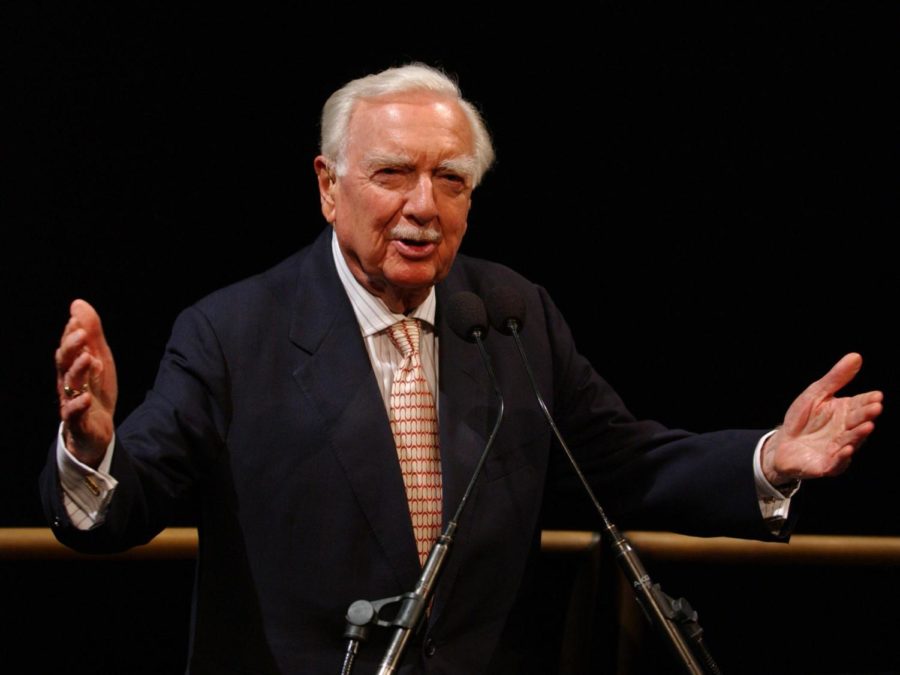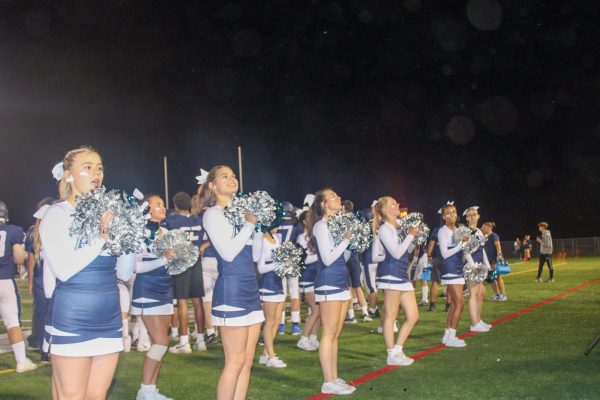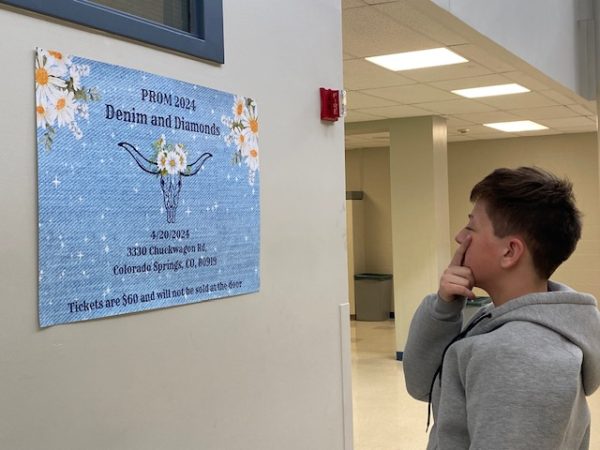Journalism is Dead
Walter Cronkite was considered the “most trusted man in America” in the media. Do you have someone in the news today that you fully trust and believe? Photo via Wikimedia Commons under the Creative Commons License. https://commons.wikimedia.org/wiki/File:Walter_Cronkite_at_35th_Apollo_11_anniversary.JPG
I do not believe there are straight-out lies in our news. However, I do believe that news networks warp the truth so stories lead the way media wants them to. No one wants to click on the TV and see something that goes entirely against their worldview, and networks know this. They know you want to be safe, secured in your opinion, and feel comfortable with your reality of our country.
I really started paying attention to the news during the 2016 election. When watching different channels and scrolling through the news app on my phone, it became apparent to me that news stations were very flexible in what they decided to include and leave out in stories. That’s when I came to the realization of just how polluted journalism is. It’s become a race to be first – not necessarily right – and there seem to be no rules or integrity involved.
There’s a creed too, which is considered to be the “law” of being a journalist. My teacher projected it on the board and asked us what lines stood out the most.
“I believe that a journalist should write only what he holds in his heart to be true.”
This line was powerful to me for a particular reason. When I read it, I discerned that it wasn’t quite followed today. I didn’t believe journalistic integrity seemed important to our country’s journalists and news corporations anymore. That news organizations may not be run with the goal to deliver the truth, but rather the truth you want to hear.
English teacher Heather Scott said the news environment today is “chaotic” and “competitive.”
“Toxic,” says Renee Motter, TAG Coordinator and Speech and Debate coach, “Journalism used to be a place to get the facts, and it is definitely no longer a place to get the facts. Every news organization has a bias of some kind.”
“Hostile, I feel like a lot of people are fighting whenever they’re writing, and very bias,” Junior Rebekah Mcintosh answered.
Scott also believes that “there’s been an evolution in the way we communicate and so I think where people used to look to one source as an authority, for example their morning newspaper, they now have such a bevy of choices that not only do the networks cater to them, but consumers are savvy enough to demand a certain gloss to their news.”
In other words, news networks know what their consumers want and will give it to them. Although, that may not seem like a bad thing. However, in the world today, there’s a lot of misinformation circling around and being promoted by certain people. Everyone deserves to hear every side of every story and shouldn’t allow the news to spoon-feed us into a submission that it seems we almost want.
Notorious for this spoon-feeding, Facebook uses information we give them to decide what content to show us: content that fits our current worldview.
In Facebook’s terms and services it stated, “Information you share on Facebook (example: posts or comments you make) and your activity on Facebook (such as liking a Page or a post, clicking on ads you see). Information advertisers and our marketing partners share with us that they already have, like your email address. Your activity on websites and apps off of Facebook.”
This is what people consider an “echo chamber.” Your favorite things, opinions and interests are echoed back to you to keep you interested. This is what we see and experience in the media nowadays.
Information we receive may be twisted and tweaked to fit a certain narrative that specific networks want promoted in the world around us.
The truth is, if you’re one to stick to a regular network and follow it religiously, I’d suggest looking into where the information is coming from. Today, all citizens of the world have to decide if they want to continue to blindly believe what they hear, see and read, or if they want to look at their sources with a critical eye to get the news that they deserve.

My name is Olivia Joyce and I'm a journalist for the Jetstream Journal. I am a junior at Air Academy High School and this is my first year writing for...









Peter Grot • Oct 1, 2018 at 1:26 pm
I definitely agree, there are many perspectives and this sounds like a good description of today’s journalism. Feels a little dystopian these days.